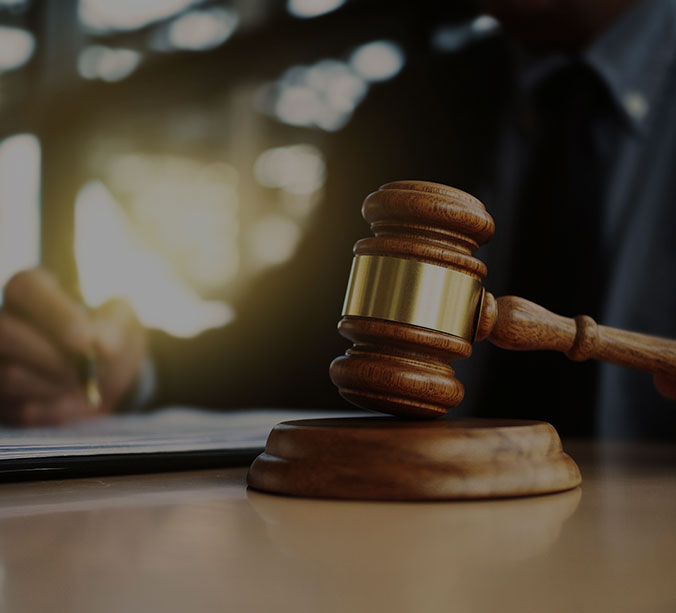As law enforcement accountability remains a national concern in 2025, body-worn cameras (BWCs) have become standard across many police departments, including the Philadelphia Police Department (PPD).
While early discussions began in the wake of the Ferguson protests, body cameras are no longer just a pilot program — they’re a permanent fixture of modern policing in Philadelphia and other major cities.
But how effective are police body cameras? Do they truly promote transparency and reduce misconduct — or do they raise more questions than they solve? Whether you’re a resident, visitor, or criminal defendant in Pennsylvania, understanding how body camera footage works and what it does (and doesn’t) capture is critical to knowing your rights.
The Benefits of Police Body Cameras
- Documenting Police Interactions Accurately: Body cameras create a digital record of what occurred during a stop, arrest, or use-of-force incident. This protects both officers and civilians from false allegations and helps ensure that misconduct is easier to verify.
- Reducing Use-of-Force & Complaints: Multiple studies, including a NIJ-funded evaluation, have shown that officers wearing body cameras may be less likely to escalate encounters. In departments with strict BWC policies, complaints against police dropped by as much as 17%.
- Improving Evidence Collection: Footage from body cams can capture chaotic scenes that might otherwise be misremembered or missed entirely. Prosecutors and defense attorneys alike use BWC footage to establish timelines, corroborate statements, and provide visual context in court.
- Better Witness & Victim Statements: Interviews recorded in the moment can preserve crucial details that fade with time. When victims or bystanders later change their stories, BWC footage offers a reliable reference point.
- Increased Public Trust in Law Enforcement: Transparent policies on when and how footage is released can help rebuild trust in communities where relationships with police have eroded.
Drawbacks & Limitations of Body-Worn Cameras
- Privacy & Legal Concerns Remain Murky: Pennsylvania’s wiretap and privacy laws still leave gray areas around when officers can legally record, particularly inside private homes or during sensitive encounters. Victims of sexual assault, for instance, may feel retraumatized by being filmed.
- Selective Recording Can Undermine Objectivity: Body cameras don’t run continuously. Officers generally activate them during law enforcement encounters, but lapses still happen — whether intentional or not. Gaps in footage can raise questions and undermine public trust.
- Costs for Equipment & Storage Are Substantial: Maintaining a citywide program means investing in not just cameras but also digital storage infrastructure, redaction tools for public release, and staff to manage requests. Philadelphia’s BWC program has cost taxpayers millions annually since its launch.
- Footage Isn’t Always Released Promptly: Delays in releasing footage — or decisions to withhold it — can create community frustration. While Pennsylvania’s Right-to-Know Law allows access in some cases, it exempts much police video from mandatory disclosure.
- Footage May Still Be Misleading or Incomplete: Body cameras capture one angle, often without audio context or full visibility. Shadows, obstructions, and stress-induced movement can affect what’s visible — and how it’s interpreted by prosecutors, jurors, and the public.
Are Body Cameras Required in Philadelphia?
As of 2023, nearly all PPD patrol officers are equipped with Axon body-worn cameras. According to Philadelphia’s Controller’s Office, the city spent over $14 million in the first five years of the program. The department’s current policy requires officers to activate BWCs during all investigative encounters, vehicle stops, arrests, and uses of force. However, compliance and oversight vary.
What Happens If Body Camera Footage Contradicts an Officer?
Body cam footage can be powerful evidence — especially when it contradicts an officer’s report. A defense attorney may file a motion to suppress based on discrepancies between the video and the official narrative. In some cases, the footage has led to dropped charges or internal discipline for officers.
What Rights Do You Have Regarding Body Camera Footage?
- In Criminal Cases: If you’re a defendant, your lawyer can request access to any body cam footage that may be relevant to your case during discovery.
- As a Civilian: You may request footage via Pennsylvania’s Act 22 (Right to Know) process, but exemptions are broad, and agencies often deny release citing ongoing investigations or privacy concerns.
- If You’re Recorded: You generally do not have a right to demand deletion. Officers are allowed to record in public spaces and during official duties unless restricted by policy.
Body Cameras Are a Tool—Not a Solution
Body-worn cameras can support transparency and accountability, but they are not a magic fix for systemic issues in policing. They work best when accompanied by strong departmental policies, consistent officer training, community oversight, and clear consequences for misuse or noncompliance.
What to Do If You’re Facing Charges Based on BWC Footage
If you’re accused of a crime and body camera footage is part of the case, you need an experienced attorney who understands how to analyze the video and identify gaps, misinterpretations, or inconsistencies. In some cases, your lawyer can use that footage to get your charges reduced or dismissed.
At Fienman Defense, we review every piece of evidence — including body cam footage — and challenge anything that doesn’t add up.
Contact Fienman Defense for a Free & Confidential Consult
If you have been charged with an offense in the greater Philadelphia metro area, you’re not alone – we can help. At Fienman Defense, we help to minimize our clients’ legal troubles and the consequences they face.
Contact us today at (215) 839-9529 for a free consultation with Philadelphia criminal defense lawyer Michael Fienman.
View All Blogs